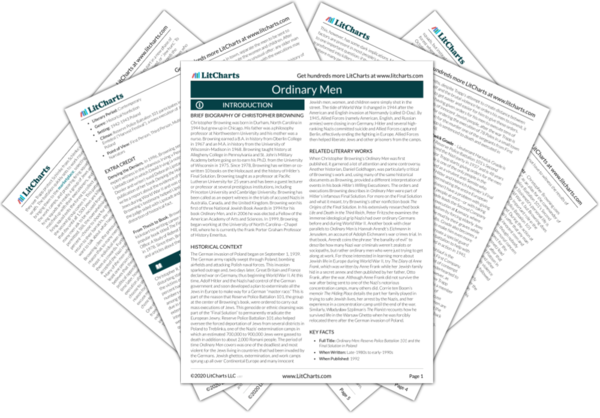The men know that after these actions, the district will likely be formally declared
judenfrei, which could help explain why the men are botching so many executions. There is added pressure to get the job done quickly (even if it’s not done
well and it causes unnecessary suffering) so they can help fulfill the ultimate goal of making the General Government totally
judenfrei. Witnesses note that not all of the Jews who are shot actually die right away—they lie in the grave, cursing the Nazis. This means the men are apparently firing indiscriminately, without worrying about making sure their victims die right away (as at Józefów) and with complete indifference to their immense suffering.
